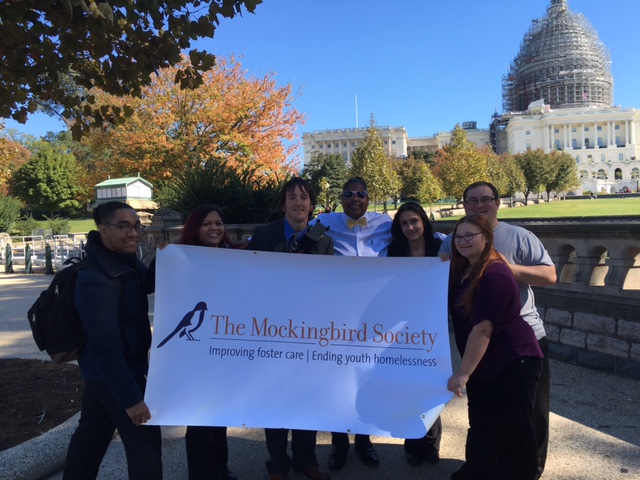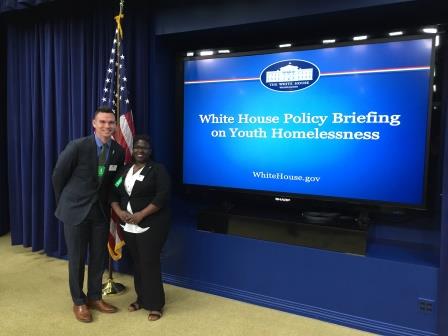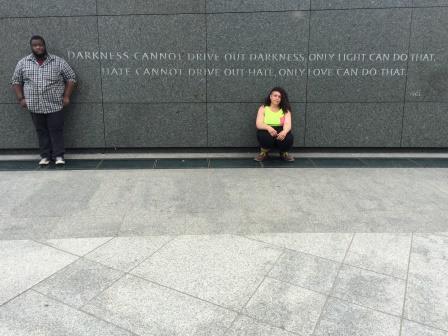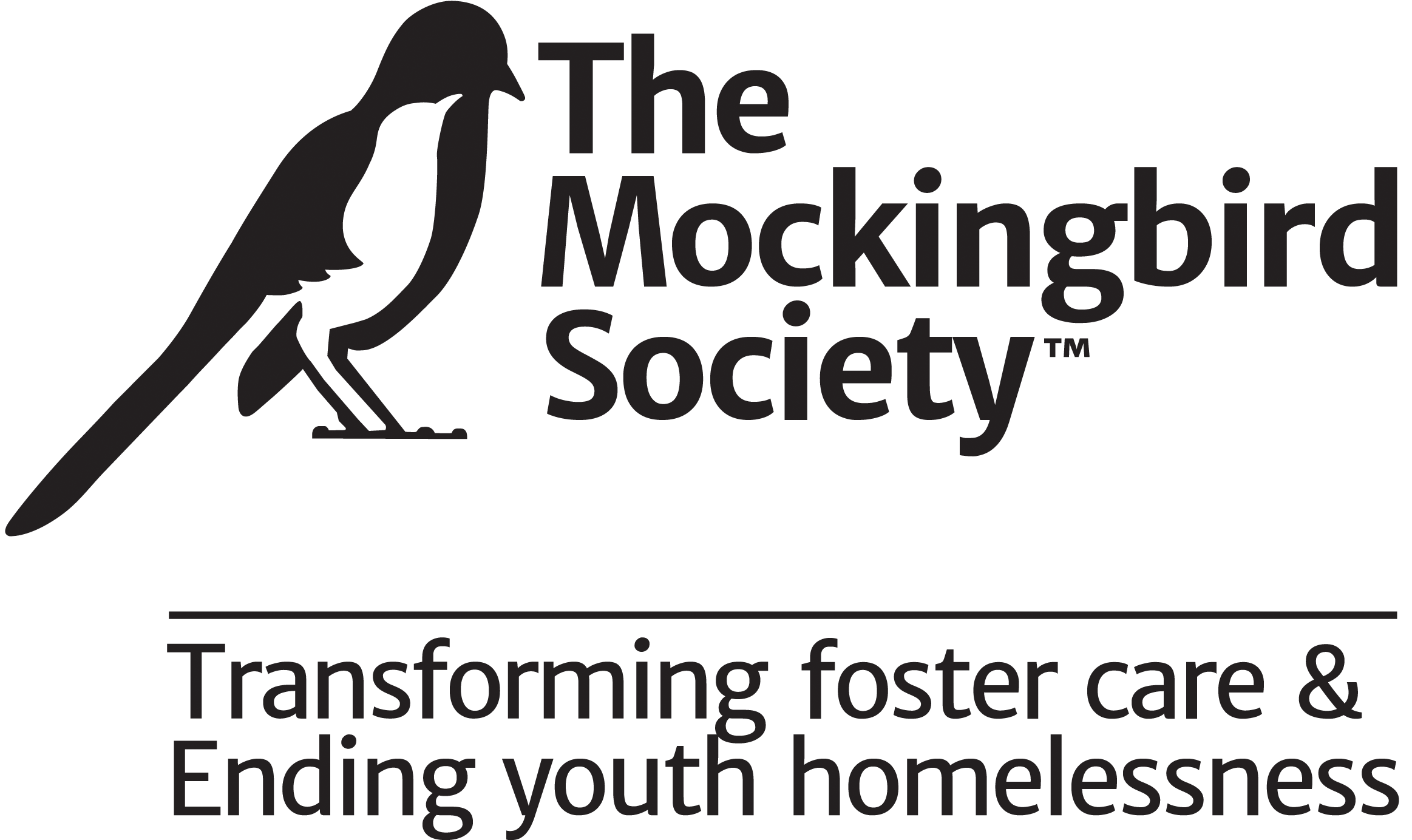Changing the National Conversation
Mockingbird Youth Change the National Conversation
By Fred Kingston, Director of Youth Programs

This week, four young adult staff members from The Mockingbird Society, all alumni of foster care, were in Washington DC. They joined members of Foster Youth in Action, a national advocacy group, to present youth-led policy ideas to members of Congress during a child welfare advocacy conference that spanned four days.
The team’s departure sparked memories of two recent trips I made to our nation’s capital with young people earlier this year.
In April, The Mockingbird Society was invited to send a young adult advocate and a staff member to the White House. The Obama Administration was hosting a policy briefing on Youth Homelessness, and so I joined alumna of care Violet Banks in making the trip. Violet experienced a period of homelessness after aging out of care, as do at least 35% of young people who age out of foster care in our state.1 She spoke powerfully about this experience before a group of the nation’s most highly regarded service providers, policy makers, and philanthropists. Violet made the case that youth need to be at the decision-making table as laws are being created because, “[W]e humanize a situation that kind of seems distant to a lot of people… Having us there, it brings a lot of truth where there is a lot of darkness, where there’s a lot of assumption.” Violet was warmly received, and her story was featured later on the White House blog.2
In July we headed back to DC, this time at the request of the National Alliance to End Homelessness (NAEH). I was joined by Liz Hernandez and Shallamar Campbell, who work with Mockingbird’s Youth Advocates Ending Homelessness program. We attended NAEH’s national conference on ending homelessness and presented a workshop there called Youth Voices: Informing Policy and Practice. Along with youth advocates from the True Colors Fund, we participated in a listening session with key members of the Department of Housing and Urban Development (HUD) to discuss youth perspectives on ending homelessness. Attending the conference strengthened our relationships with NAEH, the True Colors Fund, HUD and other advocacy groups and service providers. It was also an opportunity to share the strategies Mockingbird uses to support young advocates with a national audience.

As I reflect on the cumulative impact of these trips, I draw two conclusions.
First, the youth of The Mockingbird Society are more engaged in the national advocacy dialogue than ever before. And the response from national audiences has been incredibly affirming. Policymakers and funders in DC get it – we can’t fix broken systems without the insights and expertise of young people who have experienced these issues first-hand. Youth not only increase empathy, break down stereotypes, and increase our collective will to act – they are natural systems thinkers who identify and rally behind common sense reforms that will move the needle.
Second, the youth development impact of these trips is powerful. At Mockingbird, one of our goals is to create platforms for young people to share their experiences and ideas in effective ways. To see an example of what it looks like when we achieve that goal, I suggest watching the video of Violet and her peers speaking at the White House.
After returning from the NAEH conference, Liz said, “I think that it’s important that youth who have experienced homelessness are represented [at the conference]. I say that mainly because there were so many ideas that we came up with for ending youth homelessness. Many ideas seemed to be unheard of, which I think adds innovation for future projects.”
For these young leaders, contributing on the national stage has catalyzed a greater passion – a larger commitment – for helping be the change. If we, as a national community of advocates, hope to continue making progress on issues that sometimes seem intractable, we’ll need to continue partnering with young people as committed as Liz, Lamar, Violet, and their Mockingbird peers.
Mockingbird aims to continue supporting young people in participating in Federal advocacy, and as we do, I’m confident that their efforts will continue to influence the national conversation. I also know that they will gain new experiences and skills that will fuel their passion, and strengthen their commitment to reaching the goal of every child in our state, and country, having a safe and stable home.

1Shah, Albrecht, and Felver. (2013) The Housing Status and Well Being of Foster Youth Aging Out in Washington State. Washington State Department of Social and Health Services Research and Data Analysis Report 11.195
https://obamawhitehouse.archives.gov/blog/2015/05/08/ending-youth-homelessness
